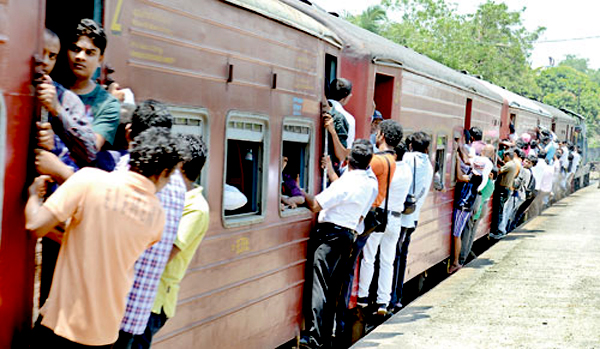Reply To:
Name - Reply Comment
Last Updated : 2024-04-19 15:52:00
.jpg) Sustainable Development as it is practised today is essentially a myth. The linear economic growth model that is widely subscribed to across the world today does not promote sustainable development. Any setback in economic growth even in the most developed country is presented as a sign of economic recession that can lead to rising unemployment, decreasing profits, business closures etc. So, no political leader in a developed country can afford to let the economy contract. They pump public money into the economy to stimulate economic activities and increase consumption. President George Bush said that, in a context of economic recession, increasing consumption was a patriotic act on the part of citizens. In the developing world, the desire is to maintain a higher level of growth over time, with the hope that today’s developing economies would achieve the developed country status in the near future.
Sustainable Development as it is practised today is essentially a myth. The linear economic growth model that is widely subscribed to across the world today does not promote sustainable development. Any setback in economic growth even in the most developed country is presented as a sign of economic recession that can lead to rising unemployment, decreasing profits, business closures etc. So, no political leader in a developed country can afford to let the economy contract. They pump public money into the economy to stimulate economic activities and increase consumption. President George Bush said that, in a context of economic recession, increasing consumption was a patriotic act on the part of citizens. In the developing world, the desire is to maintain a higher level of growth over time, with the hope that today’s developing economies would achieve the developed country status in the near future.| " In this country, people’s representatives have the largest fleets of motor vehicles that are maintained at public expense and often create havoc on our roads, when law enforcement officers are employed to suspend traffic rules, to create road space for them to pass at break neck speed " |

| " Had we built on the pre-existing systems of public transport by investing more resources to modernize the railway infrastructure and other modes of public transport like buses and light rail systems, the need for private transport would have been reduced to a great extent. Since public transport often comes as an afterthought, it remains secondary to private transport " |

Add comment
Comments will be edited (grammar, spelling and slang) and authorized at the discretion of Daily Mirror online. The website also has the right not to publish selected comments.
Reply To:
Name - Reply Comment
On March 26, a couple arriving from Thailand was arrested with 88 live animal
According to villagers from Naula-Moragolla out of 105 families 80 can afford
Is the situation in Sri Lanka so grim that locals harbour hope that they coul
A recent post on social media revealed that three purple-faced langurs near t